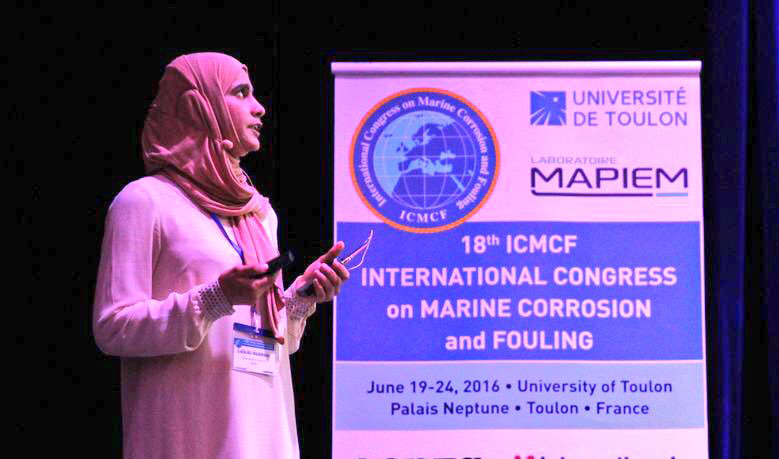
Muscat: Studying the remains of shellfish for the past few years has led to a remarkable breakthrough for an Omani student.
Laila Al Numani, a doctoral student in her last year in the College of Agricultural and Marine Sciences at Sultan Qaboos University, believes she has created a sprayable solution that could help save marine industries millions and even preserve the shelf life of food.
And her work has won her a Best Research award, as well as accolades in Germany for her work developing her spray.
“I used the remains of animal shells, such as shrimp, lobster, squid, and crab to extract a substance called Chitosan,” she said. “The composition can be used as a spray-on for the preparation of food packing to preserve and increase their shelf life. It combats many types of bacteria and fungi, and can prevent biological pollution caused by waste disposal.”
She explained that by extracting the substance from waste products, she transformed it to become something useful.
“The extraction of Chitosan is simple and cost-effective. It can be produced on an industrial scale in Oman.”
Dr. Sergei Dobretsov, Head of Department of Marine Science and Fisheries at the university, served as one of Al Numani’s mentors throughout the research. He said he hoped the product could truly benefit the general public.
“Strong links between research and industry are vital for further development and knowledge transfer. We would welcome companies which would like to collaborate with us,” said Dr. Dobretsov.
Dr. Dobretsov also commented on the novelty of the project, “While worldwide Chitosan is well known, Ms. Laila with the help of Professors Dutta in Sweden, Professor Grant in the UK, and myself was able to create a new coating to prevent biofouling,” he said.
“Marine biofouling is the accumulation of harmful plants and organisms on wet surfaces such as ships and boats,” Al Numani explained. “There is significant economic impact caused by biofouling in the Sultanate, especially regarding slow movement of ships, as well as causing surfaces to rust.”
However, Chitosan’s important role in food security has prompted Al Numani to pursue it following her last year as a doctoral student. “In the future, I would certainly like to continue my research to benefit the food sector. I would especially like to direct my efforts in mass production of Chitosan from crustacean waste collected in Oman,” she said.
“Any idea, even a minor one, can be converted into a serious scientific project,’ Al Numani added. “Students must have confidence that they are capable of innovation and achievement, and with the right advisor and a lot of perseverance, students can overcome any obstacles in their way.”